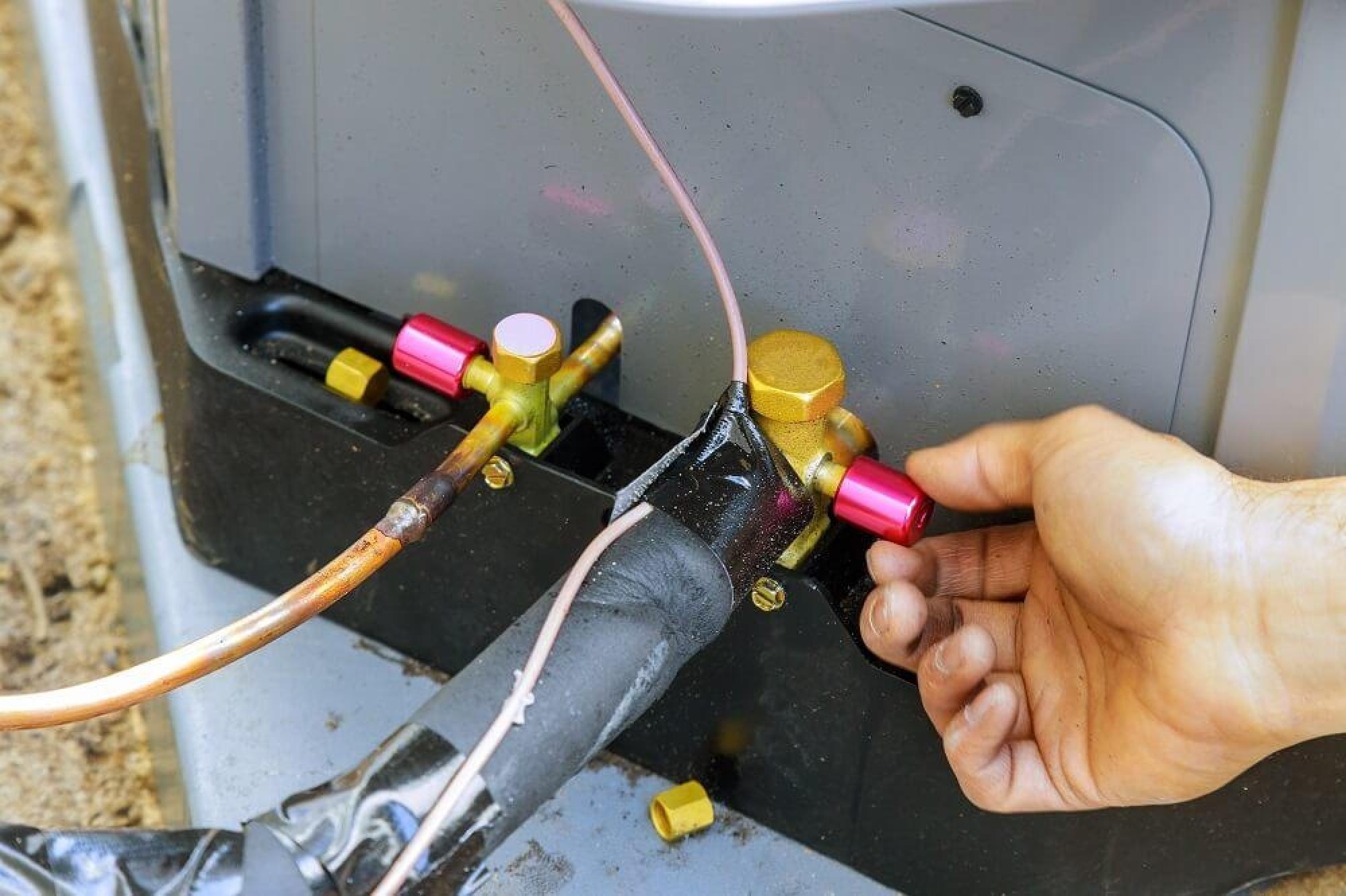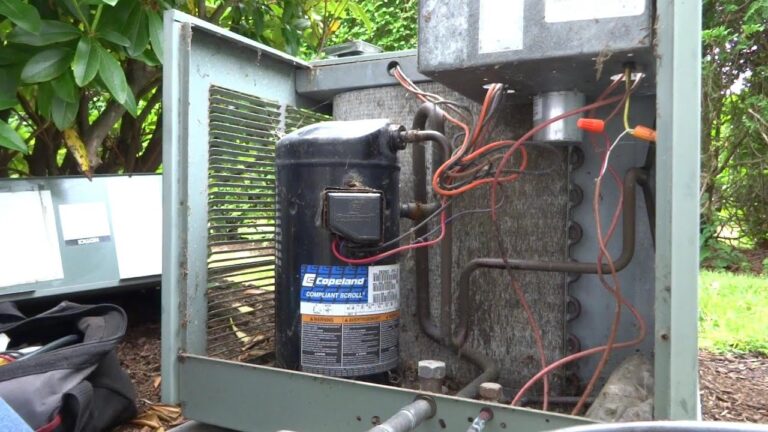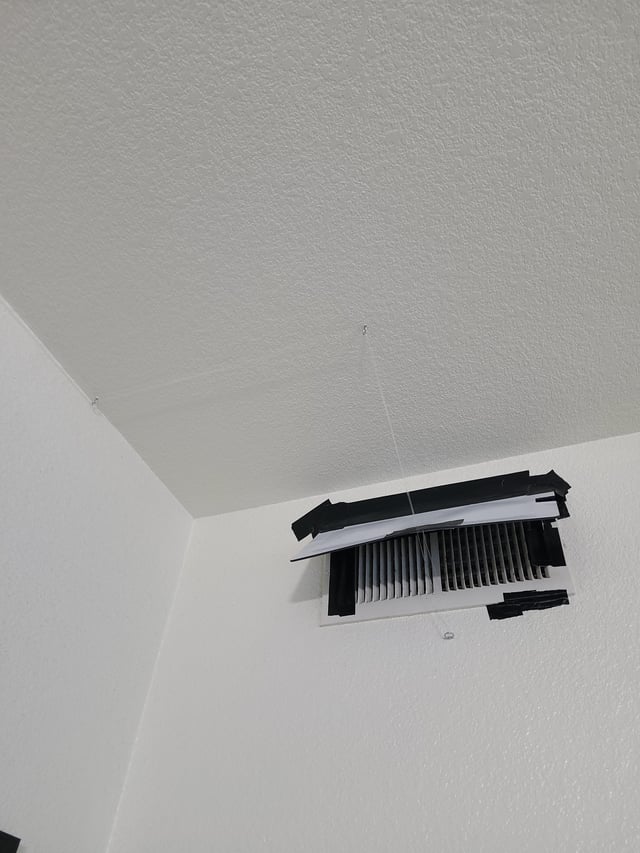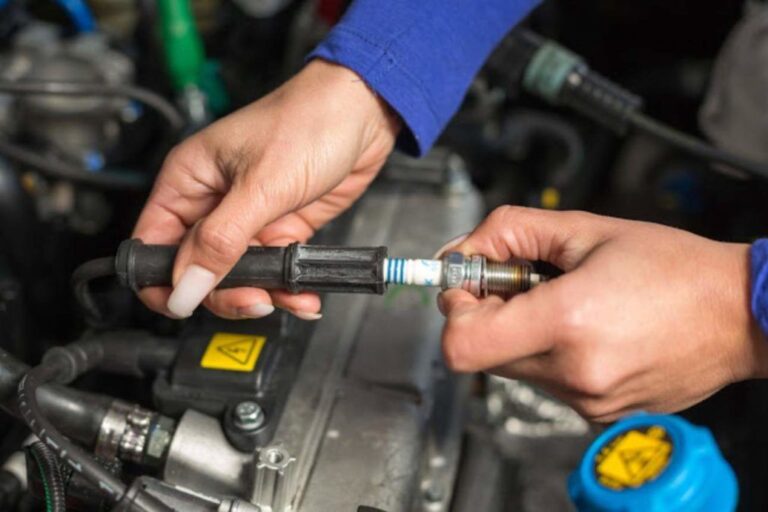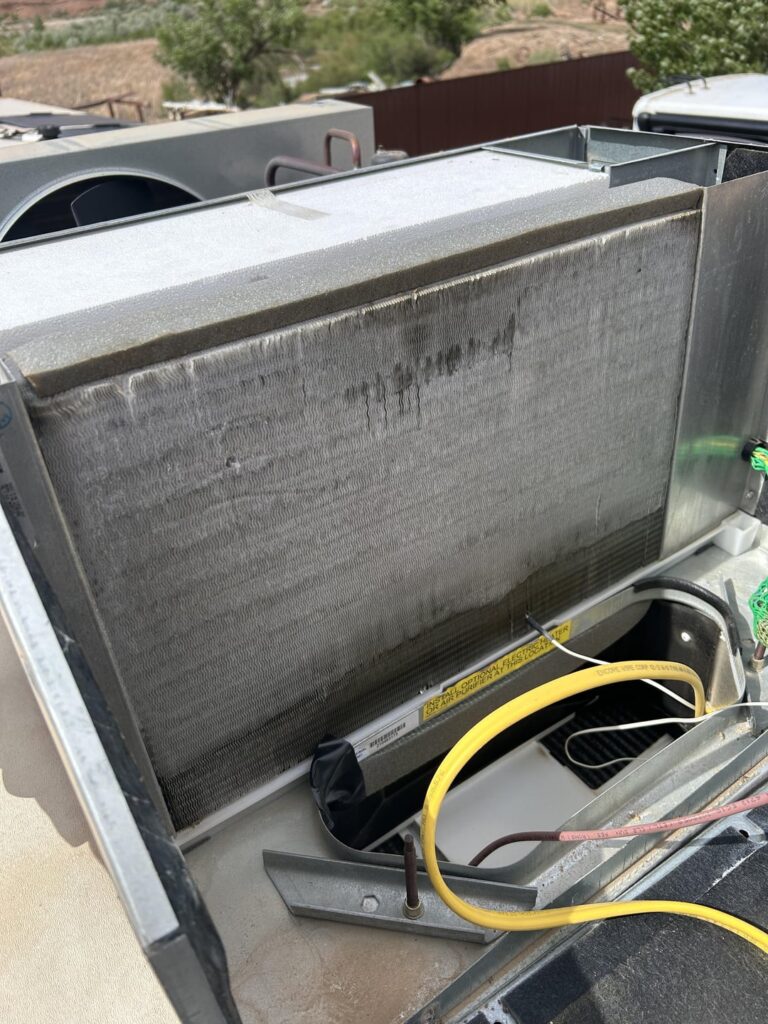Why Is My AC Unit Running But Not Cooling? Uncover the Mystery!
Your AC unit might be running but not cooling due to low refrigerant levels or a dirty air filter. Faulty components could also be the issue.
An air conditioning unit that runs but doesn’t cool can be frustrating. Several reasons could cause this problem, such as low refrigerant levels, which affect the cooling process. A dirty air filter restricts airflow, reducing the unit’s efficiency. Faulty components like a malfunctioning compressor or fan can also lead to inadequate cooling.
Regular maintenance and timely checks can help identify and resolve these issues. Ensuring your AC unit is in good condition will keep your home comfortable and energy-efficient. If problems persist, consult a professional technician to diagnose and fix the issue.

Credit: www.microcapacitacion.com.ar
Common Causes
Is your AC unit running but not cooling? Understanding the common causes can help. Let’s explore the typical reasons behind this issue.
Thermostat Issues
The thermostat controls the temperature of your home. If it’s set incorrectly, your AC may run without cooling. Ensure the thermostat is set to “cool” mode. Double-check the temperature settings too. Sometimes, the thermostat might be faulty. A malfunctioning thermostat can send wrong signals to your AC unit.
Another issue can be the location of the thermostat. If it’s near a heat source, it might not read the room temperature correctly. This can cause your AC to run without cooling the room. Ensure the thermostat is placed in a central location, away from direct sunlight or heat sources.
Dirty Air Filters
Dirty air filters can block airflow in your AC unit. This causes the system to run but not cool. Air filters trap dust, dirt, and other particles. Over time, these filters can become clogged. A clogged filter restricts air circulation.
Change or clean the air filters regularly. Most experts recommend replacing the filters every 1-3 months. This ensures optimal airflow and cooling efficiency. Check your AC unit’s manual for specific instructions on filter maintenance.
Here’s a quick guide for maintaining your air filters:
- Turn off the AC unit.
- Locate the air filter.
- Remove the filter carefully.
- Inspect the filter for dirt and debris.
- Replace or clean the filter as needed.
- Reinstall the filter and turn on the AC unit.
Regular maintenance can prevent many common AC issues. Keep your thermostat and air filters in check for a cool and comfortable home.
Refrigerant Problems
Your AC unit is running, but it’s not cooling your home. The issue might be related to refrigerant problems. Refrigerant is crucial for cooling. If there’s a problem, your AC can’t work properly. Let’s dive into two common refrigerant issues: low refrigerant levels and refrigerant leaks.
Low Refrigerant Levels
Low refrigerant levels can hinder your AC’s performance. The refrigerant absorbs heat from your home. If the levels are low, it can’t absorb enough heat. This can result in warm air blowing from the vents.
Signs of low refrigerant levels include:
- Longer cooling cycles
- Warm air from vents
- Higher energy bills
To fix this, a professional can recharge your AC. They will add the correct amount of refrigerant. This ensures your unit runs efficiently.
Refrigerant Leaks
Refrigerant leaks are another common issue. Leaks can cause a drop in refrigerant levels. This impacts the cooling performance of your AC.
Common causes of refrigerant leaks:
- Corrosion on coils
- Factory defects
- Wear and tear over time
To detect a leak, technicians use special tools. Once found, they will repair the leak. Then, they will recharge the system with refrigerant.
Ignoring refrigerant leaks can lead to bigger problems. Your AC might work harder and use more energy. This can shorten the lifespan of your unit.
Blocked Condenser Unit
A blocked condenser unit can be a major reason why your AC unit is running but not cooling. The condenser unit plays a crucial role in expelling heat from your home. When it gets blocked, the cooling efficiency drops, causing discomfort. Let’s explore the common causes of a blocked condenser unit.
Debris Accumulation
Debris accumulation around the condenser unit can hinder its performance. Leaves, dirt, and other particles can block the fins and coils. This blockage prevents the efficient release of heat.
Regular cleaning can help avoid this issue. Use a garden hose to gently wash away the debris. Ensure the unit is off before cleaning.
Restricted Airflow
Restricted airflow is another common issue. Plants, fences, or other obstructions near the unit can limit airflow. Poor airflow affects the unit’s ability to cool effectively.
Ensure there is at least a two-foot clearance around the unit. Trim any nearby plants and remove any obstacles.
| Cause | Solution |
|---|---|
| Debris Accumulation | Clean the unit regularly |
| Restricted Airflow | Maintain proper clearance |
By addressing these issues, you can enhance your AC unit’s performance. Regular maintenance ensures your home stays cool and comfortable.
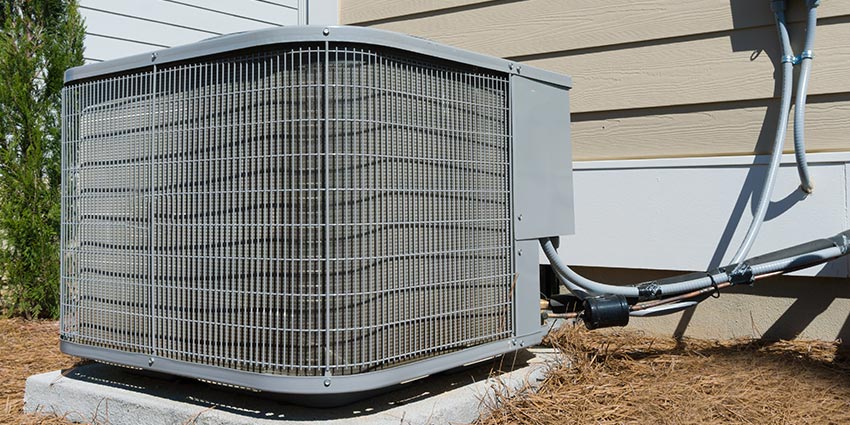
Credit: www.microcapacitacion.com.ar
Evaporator Coil Issues
Evaporator coils are vital for your AC unit’s cooling function. Problems with these coils can stop your AC from cooling your home. Two main issues with evaporator coils are frozen coils and dirty coils.
Frozen Coils
Frozen coils stop your AC unit from cooling properly. Ice forms on the coils due to poor airflow or low refrigerant levels. This ice blocks the coil from absorbing heat, making your home warm. Signs of frozen coils include visible ice and a lack of cool air.
- Blocked vents
- Dirty air filters
- Low refrigerant
Check these parts to fix frozen coils. Ensure vents are clear and filters are clean. You may need a professional to check the refrigerant level.
Dirty Coils
Dirty coils also stop your AC from cooling well. Dust and debris build up on the coils. This layer of dirt acts as an insulator, preventing the coils from absorbing heat. Clean coils regularly to maintain efficient cooling.
| Problem | Solution |
|---|---|
| Dirty air filters | Replace or clean filters |
| Outside debris | Clear away leaves and dirt |
Regular maintenance helps avoid dirty coils. Keep your AC unit clean to ensure optimal performance.
Electrical Problems
Electrical problems can cause your AC unit to run but not cool. These issues can be complex and dangerous. It’s crucial to understand the common electrical problems affecting your AC unit.
Faulty Wiring
Faulty wiring can stop your AC from cooling. Wires may break, fray, or burn. These issues disrupt the electrical flow. This stops the compressor from working. The compressor is vital for cooling. You may notice a burning smell. This is a sign of bad wiring. Call a professional to inspect the wiring. Do not attempt to fix it yourself.
Tripped Circuit Breakers
A tripped circuit breaker can also cause cooling issues. The breaker protects your home from electrical overloads. If it trips, your AC may run but not cool. Check the breaker box. Look for any switches that are off. Reset the breaker if needed. If it trips again, there is a problem. This could be an overloaded circuit. It could also be a short circuit. Both need professional attention.
| Electrical Problem | Signs | Action |
|---|---|---|
| Faulty Wiring | Burning smell, AC not cooling | Call a professional |
| Tripped Circuit Breakers | Switches off in breaker box | Reset breaker, call a professional if it trips again |
Understanding these electrical issues can help you identify problems early. This ensures your AC unit works efficiently and safely.
Ductwork Leaks
One common reason your AC unit might run but not cool is ductwork leaks. Ducts carry cool air to your rooms. Leaks in the ducts mean cool air escapes. This reduces the cooling in your home. Fixing ductwork leaks can improve your AC’s efficiency.
Loose Connections
Loose connections in your ductwork are a major problem. Over time, connections can loosen. This allows cool air to escape.
Loose connections can occur at joints, seams, or even where ducts meet the AC unit. Regular inspection can help spot these issues. Use duct tape or mastic sealant to secure loose connections.
Damaged Ducts
Damaged ducts can also lead to leaks. Ducts can get punctured or torn. Animals, pests, or even renovations can cause damage.
Inspect your ducts for visible damage. Repair small holes with duct tape. For larger damage, consider replacing the section. Keeping ducts in good shape ensures your AC cools efficiently.
| Issue | Cause | Solution |
|---|---|---|
| Loose Connections | Wear and tear | Inspect and seal |
| Damaged Ducts | Physical damage | Repair or replace |
- Inspect ducts regularly for leaks.
- Use mastic sealant for loose connections.
- Repair or replace damaged duct sections.
Compressor Malfunctions
The compressor is the heart of your AC unit. If the compressor malfunctions, it affects the cooling process. Here, we explore two common issues: overheating and mechanical failures.
Overheating
Overheating is a frequent issue with compressors. When the compressor gets too hot, it might shut down. This prevents your AC from cooling effectively.
Several factors cause overheating. Poor ventilation around the unit is a common cause. A dirty air filter can also block airflow. Another reason could be low refrigerant levels.
You can prevent overheating by maintaining the unit. Ensure good ventilation and clean air filters. Regularly check refrigerant levels.
Mechanical Failures
Mechanical failures in the compressor are another cause of cooling problems. Parts inside the compressor can wear out or break.
Common issues include broken valves or damaged pistons. These problems affect the compressor’s ability to pump refrigerant. Without proper refrigerant flow, the AC cannot cool your home.
Regular maintenance can help identify mechanical issues early. Addressing these problems promptly can prevent further damage.
Maintenance Tips
Maintaining your AC unit ensures it runs efficiently and lasts longer. Proper maintenance can prevent issues like your AC running but not cooling. Below are some essential maintenance tips to keep your AC in top shape.
Regular Inspections
Performing regular inspections helps spot potential problems early. Check for any visible damage or wear on the AC unit. Look at the filters, coils, and fins for dirt and debris. Clean or replace filters every 1-2 months during peak usage. A clean filter improves airflow and efficiency.
Inspect the thermostat settings to ensure they are correct. Make sure the thermostat is set to cooling mode. Check if the temperature settings are appropriate for the weather conditions.
| Inspection Task | Frequency |
|---|---|
| Filter Check | Monthly |
| Coil Cleaning | Annually |
| Thermostat Check | Monthly |
Professional Servicing
Professional servicing ensures your AC unit runs efficiently. Schedule a professional service at least once a year. A technician will clean the internal components and check for any issues. They will inspect and clean the evaporator and condenser coils. This improves cooling efficiency.
They will also check the refrigerant levels. Low refrigerant can cause your AC to run but not cool. The technician will inspect and seal any duct leaks. Leaky ducts reduce cooling efficiency and increase energy costs.
- Schedule annual professional servicing.
- Ensure technician checks refrigerant levels.
- Have ducts inspected and sealed if necessary.
Regular maintenance keeps your AC unit running smoothly. This helps prevent problems like the AC running but not cooling.

Credit: alltimeairconditioning.com
Frequently Asked Questions
Why Is My Ac Running But Not Blowing Cold Air?
Your AC might not blow cold air due to low refrigerant, dirty filters, or a malfunctioning compressor. Check these components.
Why Is My Ac Not Cooling Well But Runs?
Your AC might have a dirty filter, low refrigerant, or blocked vents. Check for leaks or call a technician.
Why Is My Ac Unit Turning On But Not Cooling?
Your AC unit may not cool due to a dirty air filter, low refrigerant, or a malfunctioning compressor. Check for blocked vents and clean filters. Ensure the thermostat is set correctly. If the issue persists, call a professional for diagnosis and repair.
Conclusion
Understanding why your AC unit runs but doesn’t cool is essential. Check filters, refrigerant levels, and thermostat settings. Regular maintenance can prevent such issues. If problems persist, consult a professional. Keeping your AC in top shape ensures comfort and efficiency.
Stay cool and enjoy a properly functioning air conditioner.

